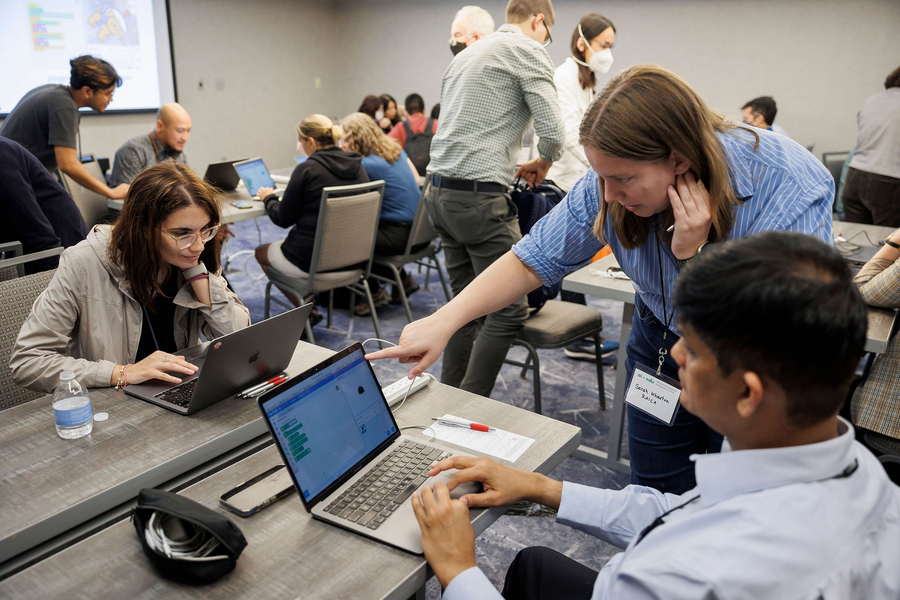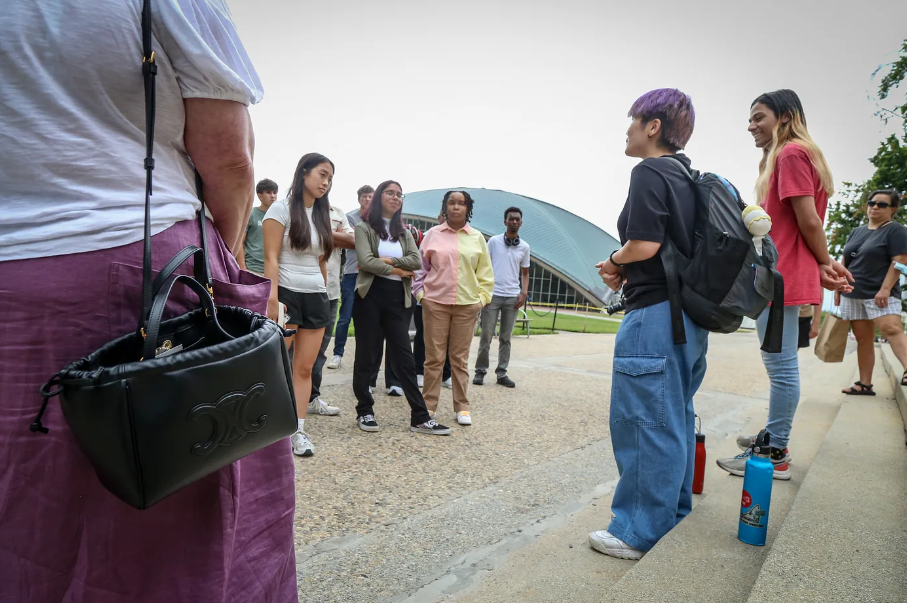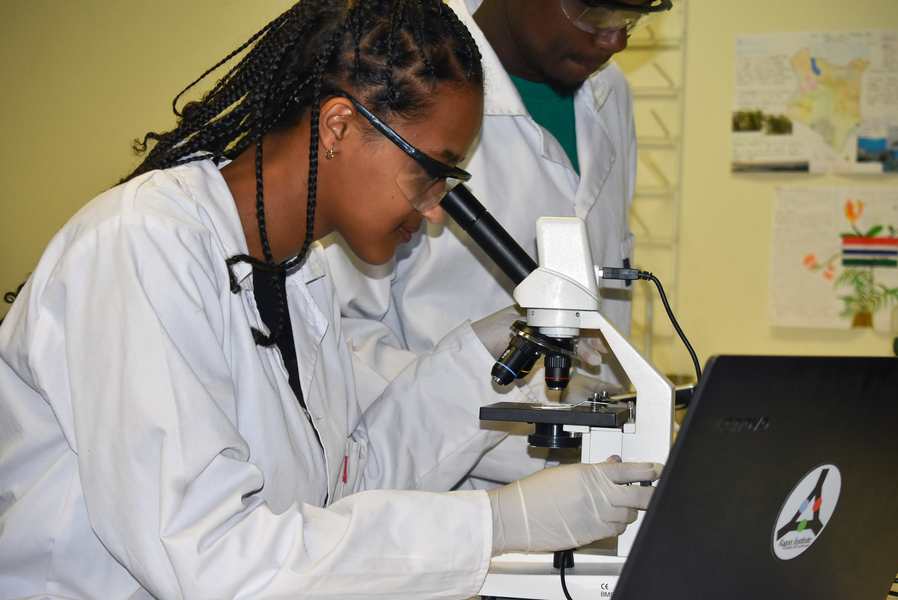Recently released paper focuses on the central question of how generative AI could be used to advance equitable educational pathways in computing. Read more
News
The inaugural Global AI Hackathon drew more than 1,000 participants from over 90 countries. Read more
The Banana Lounge offers beanbag chairs, camaraderie, and a free, potassium-rich snack to students and visitors alike. Read more
The three-day, hands-on conference hosted by the MIT RAISE Initiative welcomed youths and adults from nearly 30 countries. Read more
Through this remote opportunity, interns gain real-world coding experience and practice professional skills by collaborating on MIT’s open online courses. Read more
Throughout their journey, the Spokes team offers a variety of science demonstrations, including making concrete with Rice Krispies, demonstrating the physics of sound, using 3D printers, and, in Aluru’s case, extracting DNA from strawberries.
Dimitris Bertsimas comes to MIT Open Learning from the MIT Sloan School of Management, where he is associate dean for the master of business analytics and a professor of operations research. Read more
The Future African Scientist organization is seeking to bolster scientific learning opportunities for African youth. To date, more than 100 students and young professionals have gone through FAS programming. Read more
The student-nominated and student-judged awards recognize faculty and instructor innovations in teaching with technology. This year MITili's Josh Angrist is included - his current research, Pipelines and Equity in Gifted and Talented Programs, is ongoing.
Part of MIT Open Learning, MIT OpenCourseWare and MITx offer a selection of free courses and resources straight from the MIT classroom designed to empower current and aspiring entrepreneurs with the skills to jumpstart and grow their ventures.








